Pros and Cons of PAAS technology for Accounting and financial businesses in India
Introduction
Technology is a key factor in determining how effectiveness and efficiency of many industries, including the finance and accounting sectors, in India’s quickly changing corporate environment. Platform-as-a-Service, or PaaS, is a cloud computing architecture that provides a platform for users to develop, launch, and manage applications without having to worry about the challenges of typically building and maintaining the infrastructure involved in app development. This type of technology is gaining popularity.
This blog aims to explore the benefits and drawbacks of PaaS technology for accounting and finance businesses in India, providing information to assist stakeholders in making informed decisions.
Pros and Cons of PaaS Technology

Pros of PaaS Technology
1. Cost Efficiency
Download Free 90+ Tally Shortcut Keys
PaaS models significantly reduce the upfront costs associated with purchasing, managing, and upgrading hardware and software systems. This is particularly beneficial for small and medium-sized enterprises (SMEs) in India that may have limited financial resources.
2. Scalability
With PaaS, accounting and financial businesses can easily scale their operations up or down based on demand without incurring significant expenses or delays. This flexibility is vital in the dynamic Indian market, where business needs can change rapidly.
3. Innovation and Speed to Market
PaaS provides a range of development tools and services that facilitate rapid application development and deployment. This enables businesses to innovate faster and respond more quickly to market changes or regulatory requirements specific to the Indian financial sector.
4. Focus on Core Business Activities
By outsourcing infrastructure management to a PaaS provider, businesses can focus more on their core activities—such as financial analysis, strategy, and client service—rather than being burdened by IT management tasks.
5. Enhanced Security and Compliance
Many PaaS providers offer robust security features and compliance with regulatory standards, which is critical for businesses handling sensitive financial data in India.
Cons of PaaS Technology
1. Dependency on Service Providers
Relying on a PaaS provider means businesses are subject to the provider’s terms of service, pricing changes, and potential downtime, which can impact operations.
2. Data Security Concerns
While PaaS providers typically offer strong security measures, the inherent risk of data breaches or loss exists, especially when data is hosted off-premises. This is a significant concern for financial businesses in India that deal with sensitive client information.
3. Limited Customization
PaaS solutions may not offer the same level of customization or control as traditional on-premise tally solutions, which can be a drawback for businesses with very specific needs or workflows.

4. Integration Challenges
Integrating existing systems or data with a new PaaS solution can be challenging and costly, particularly for businesses with legacy systems.
5. Data Autonomy and Regulatory Compliance
Ensuring data stored on cloud platforms complies with Indian regulations regarding data sovereignty can be complex. Businesses must carefully select PaaS providers that adhere to local laws.
Conclusion
PaaS technology offers a range of benefits to accounting and financial businesses in India, including cost savings, scalability, and the ability to focus on core business functions. However, challenges such as dependency on service providers, data security concerns, and regulatory compliance issues must be carefully navigated. Ultimately, the decision to adopt PaaS technology should be based on a thorough assessment of these factors, aligned with the business’s strategic goals and operational requirements.
Businesses can buy Tally Cloud solutions from a reliable service provider like Tallystack.To know more about Tally on cloud or register for a free demo visit Tallystack.
Frequently Asked Questions
Q. 1 What is PaaS?
PaaS stands for Platform-as-a-Service, a cloud computing model that provides a platform and environment to allow developers to build applications and services over the internet.
Q.2 How does PaaS differ from other cloud services like IaaS or SaaS?
A platform containing tools for testing, developing, and hosting applications in the same environment is offered by PaaS. Infrastructure-as-a-Service (IaaS) offers virtualized computing resources over the internet, and Software-as-a-Service (SaaS) delivers software applications over the Internet, eliminating the need for installations or hardware management by the user.
Q.3 Can PaaS be customized for specific business needs?
While PaaS offers some level of customization, it may not provide the same degree of flexibility as building your infrastructure. The extent of customization varies by provider.
Q.4 Is PaaS secure enough for financial data?
PaaS platforms generally offer high levels of security and comply with various regulatory standards. However, businesses should conduct due diligence and assess the security measures and compliance certifications of the PaaS provider.
Q.5 How can PaaS impact the speed of deploying new applications?
PaaS can significantly reduce the time and complexity involved in deploying new applications by offering a pre-configured platform and tools for development, testing, and deployment, allowing businesses to bring new services to market more quickly.
To learn more about Tally On Cloud, you can check out our videos.
